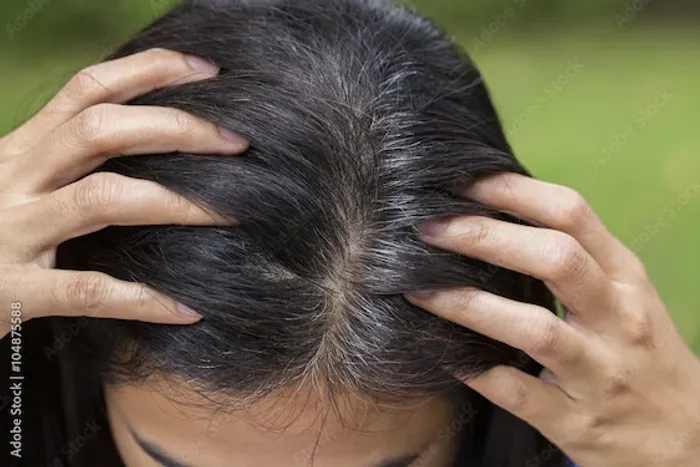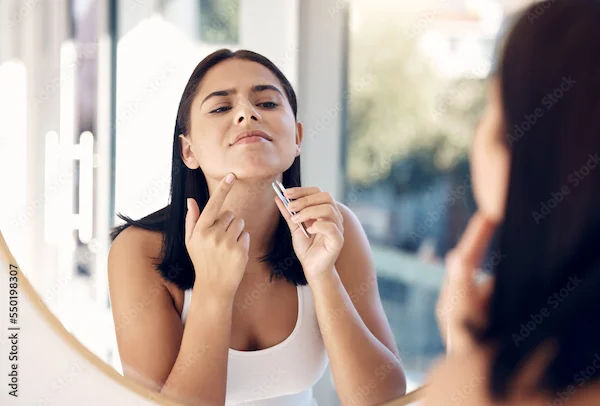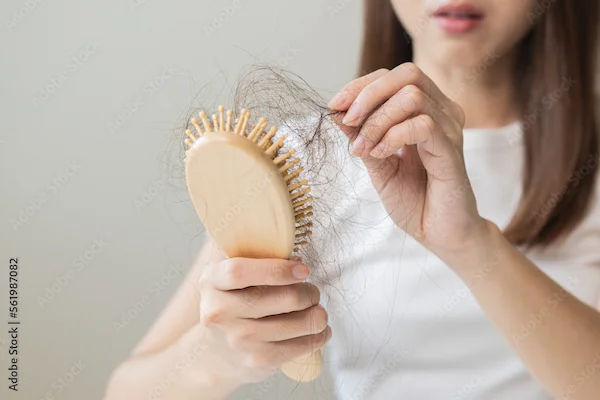How To Reduce Grey Hair?
Learn how to reduce grey hair naturally with home remedies, nutrient-rich foods, and lifestyle changes. Discover effective ways to slow down premature graying and promote healthy hair growth.

Written by Dr. Sonia Bhatt
Last updated on 3rd Jul, 2025

Introduction
Grey hair is a natural part of the ageing process, but for many, its early appearance can be a cause for concern. Whether it’s due to genetics, stress, or nutritional deficiencies, discovering your first grey strands can be unsettling. The good news is that there are multiple ways to reduce, manage, and even reverse grey hair. If you’ve found yourself wondering how to restore your hair’s natural colour, keep reading. In this article, we’ll explore the causes of grey hair and provide you with effective, research-backed strategies to reduce it.
What Causes Grey Hair?
Understanding why hair turns grey is crucial in knowing how to reduce it. The primary cause of grey hair is the natural ageing process, but other factors can also play a role. Here’s an overview of the main causes:
Genetics: Your genetics play a major role in when and how quickly you'll start to go grey. If your parents or grandparents went grey early, there's a chance you might experience the same. Early greying is inherited, and while you can’t change your genetic predisposition, knowing your family history helps you understand the timing of your hair’s transition.
Ageing Process: As we age, the hair follicles gradually produce less melanin, the pigment responsible for hair colour. With a reduction in melanin production, hair begins to lose its natural colour and turns grey. This process generally starts in your 30s or 40s, but for some, it can begin earlier.
Oxidative Stress: Oxidative stress occurs when there is an imbalance between free radicals (unstable molecules) and antioxidants in the body. Free radicals can damage hair follicles and impair melanin production, leading to premature greying. Pollution, UV radiation, smoking, and a poor diet contribute to oxidative stress.
Vitamin Deficiencies: A lack of certain vitamins and minerals, like B12, D, and iron, has been connected to early grey hair. These nutrients are important for healthy hair growth and melanin production. Without them, your hair follicles may start losing colour sooner than expected.
Hormonal Changes: Hormonal imbalances, especially during menopause or thyroid issues, can interfere with melanin production and cause early greying. The changes in hormone levels can also disrupt your hair’s natural growth cycle, leading to grey hair.
Stress: Psychological stress may contribute to grey hair. When you're stressed, your body releases hormones like cortisol, which can interfere with melanin production in your hair follicles, causing your hair to grey faster.
Health Conditions: Certain medical conditions, such as autoimmune diseases and vitiligo, can affect pigmentation in the hair and skin. Conditions like these may cause premature greying due to a malfunction in the immune system or a lack of melanin production.
To Know More Consult Top Dermatologist
How To Reduce Grey Hair?
While you can’t reverse grey hair entirely through conventional methods, there are numerous ways to reduce its appearance, slow down the process, and promote overall hair health. From lifestyle changes to hair treatments, here are some effective strategies:
1. Boost Your Diet with Hair-Friendly Nutrients
Eating a balanced diet full of vitamins and minerals is key to keeping your hair healthy and slowing down the greying process. Some nutrients are particularly helpful in boosting hair pigment production:
Vitamin B12: This vitamin is crucial for healthy hair follicles. A deficiency in B12 can cause premature greying. Foods like eggs, fish, and dairy are excellent sources of B12.
Iron and Zinc: Both minerals help nourish hair follicles and promote healthy hair growth. Leafy greens, beans, nuts, and red meat are good sources.
Copper: Copper plays a role in melanin production, the pigment responsible for hair colour. Foods like nuts, shellfish, and seeds are rich in copper.
Antioxidants: Eating foods high in antioxidants, such as berries, tomatoes, and dark leafy greens, can help combat oxidative stress and prevent premature greying.
Incorporating these vitamins and minerals into your diet may help nourish your hair from the inside out and reduce the risk of early greying.
2. Stress Management Techniques
Since stress can contribute to grey hair, managing it is important. Practices like yoga, meditation, deep breathing, and regular exercise can help lower stress levels and protect your hair. Getting enough sleep and maintaining a healthy work-life balance is also key to reducing stress's negative impact on both your body and hair. Try adding stress-relief habits into your daily routine to support your overall well-being and hair health.
3. Try Natural Oils and Herbal Remedies
Many people turn to natural oils and herbal remedies to promote hair health and reduce grey hair. Some commonly used treatments include:
Coconut Oil: Rich in antioxidants and fatty acids, coconut oil helps nourish hair and protect it from oxidative damage.
Amla Oil: Amla, or Indian gooseberry, is known for its high vitamin C content and its ability to stimulate melanin production. Amla oil has been traditionally used to slow down greying and promote healthy hair.
Black Sesame Seeds: These seeds are believed to reverse or slow down the process of greying due to their high content of copper and antioxidants.
Applying these oils to the scalp or consuming herbal remedies may help slow the appearance of grey hair.
4. Avoid Harsh Hair Treatments
Chemical hair dyes, bleach, and frequent heat styling can damage your hair follicles, which may speed up the greying process. If you're looking to reduce grey hair, it's best to steer clear of these harsh treatments.
Instead, opt for gentler alternatives like:
Natural hair dyes: If you want to cover your grey hair, try plant-based options like henna or indigo, which are gentler on your hair compared to traditional chemical dyes.
Sulfate-free shampoos: Sulfates can strip your hair of its natural oils, causing dryness and damage. Opt for a sulfate-free shampoo to help keep your hair moisturised and healthy.
Taking a gentle approach to hair care can help protect your hair from further damage and slow down the greying process.
5. Topical Treatments and Supplements
There are several topical treatments and supplements designed to help reduce grey hair and promote hair pigmentation:
Melanin Restoring Products: Some hair products are designed to stimulate melanin production in the hair follicles. While these products may not entirely reverse grey hair, they can help slow down the process and restore some colour.
Supplements: Certain supplements containing biotin, B vitamins, and antioxidants may help promote hair health and reduce premature greying.
Before using any topical treatment or supplement, it’s important to consult with a healthcare provider to ensure they’re safe and suitable for your needs.
6. Consider Medical Treatments
In some cases, medical treatments may be necessary to address underlying health conditions that contribute to premature greying. For instance, if you have a thyroid imbalance or conditions like PCOS, treating these hormonal problems can help prevent further greying.
Conclusion
While there’s no surefire way to fully reverse grey hair, there are several approaches to slow it down and reduce its appearance. A mix of good nutrition, managing stress, using natural remedies, and following a gentle hair care routine can help maintain your hair’s colour and overall health. If you're worried too much about early greying or its impact, it might be a good idea to speak with a dermatologist or healthcare provider. They can offer personalised advice and help you find the best solutions for your needs.
Consult Top Dermatologist
Consult Top Dermatologist
Dr. Kavitha Killaparthy
Dermatologist
23 Years • MBBS,DIPLOMA(DERMATOLOGY,VENEREOLOGY,LEPROSY)
Hyderabad
JDS Skin & Hair Clinic, Hyderabad
Dr. Mayuri Jain
Dermatologist
11 Years • MBBS, MD Dermatology , Venereology & Leprosy
Delhi
Dr Mayuri Jain Clinic, Delhi

Dr Ekansh Shekhar
Dermatologist
10 Years • MBBS MD
Lucknow
Apollo Clinic Hazratganj, Lucknow
Dr.j Girishma
Dermatologist
6 Years • MBBS MD DERMATOLOGY
Bengaluru
Apollo Medical Center, Marathahalli, Bengaluru
Dr. Sudheer Kumar S
Dermatologist
7 Years • MBBS, MD (DVL)
Tirupati
Nil, Tirupati
To Know More Consult Top Dermatologist
Dr. Kavitha Killaparthy
Dermatologist
23 Years • MBBS,DIPLOMA(DERMATOLOGY,VENEREOLOGY,LEPROSY)
Hyderabad
JDS Skin & Hair Clinic, Hyderabad
Dr. Mayuri Jain
Dermatologist
11 Years • MBBS, MD Dermatology , Venereology & Leprosy
Delhi
Dr Mayuri Jain Clinic, Delhi

Dr Ekansh Shekhar
Dermatologist
10 Years • MBBS MD
Lucknow
Apollo Clinic Hazratganj, Lucknow
Dr.j Girishma
Dermatologist
6 Years • MBBS MD DERMATOLOGY
Bengaluru
Apollo Medical Center, Marathahalli, Bengaluru
Dr. Sudheer Kumar S
Dermatologist
7 Years • MBBS, MD (DVL)
Tirupati
Nil, Tirupati



